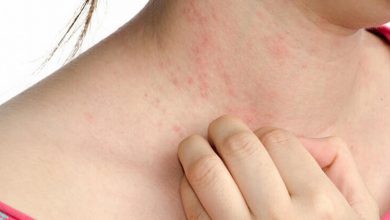What is typhoid? What are the symptoms?

What is typhoid? What are the symptoms?
Typhoid fever, also known as enteric fever; It is an infectious disease that is transmitted by contaminated drinking-use water and unclean food, which can usually be seen as an epidemic in the summer and autumn months, and can affect the heart, brain, kidney, lung, liver, eye and ear nerves in advanced cases. The causative agent is Salmonella enterica serovar Typhi bacteria. This bacterium is the only living human to live. The disease occurs 1-2 weeks after the bacteria enter the body. The bacteria are found in the feces or urine, blood, saliva, or skin rash on the body of patients with typhoid.
How Is It Transmitted?
- With waters; Drinking and using contaminated water (contaminated with bacteria) whose source is unknown,
Failure to properly dispose of human and animal wastes and their mixing with spring waters,
It can be contaminated due to insufficient chlorination of drinking and utility water. - With foods; Foods that carry Salmonella and that are not well cooked, such as meat, eggs, milk and dairy products.
- Unpasteurized milk or fruit juice, cheese,
- Contamination may also occur through contaminated (dirty) raw vegetables and fruits, spices and snacks.
From animals to humans - After contact with sick poultry,
- Especially avoid contact with pets such as snakes, turtles, lizards, frogs, birds and chicks.
- Contamination may occur if the hygiene rules are not followed afterwards.
- From person to person;
- Bacteria can also be transmitted from sick people to other people.
What are the Symptoms?
The disease lasts for an average of 4 weeks. In the first days, there is tiredness and headache, and after a few days, the fever rises gradually. It manifests with non-typical symptoms such as weakness, anorexia, high fever, headache, constipation, chills, muscle aches, cough and sore throat. The patient’s body is dry and does not sweat. Some patients may also have nosebleeds. Nausea is usually not severe. Diarrhea is uncommon (33-50%), even characteristically not causing diarrhea in adults. In young children, the disease can only occur with fever and has a milder course. After this week, the disease takes its most severe form. The fever is very high and can reach 40 ° C. Blood pressure decreases and heart rate slows down. Symptoms are continuous and the person is very tired. Red spots (rose spots) seen in the abdomen and back area appear during this period. Blood may be seen in the patient’s stool. In severe cases, confusion, delirium, intestinal perforation (perforation), stomach bleeding, vascular inflammation, circulatory failure and death may occur. In the last week, the symptoms of the disease begin to disappear and the patient’s fever returns to normal.
How Is It Diagnosed?
In addition to the clinical findings, the diagnosis is made by the production of the agent in the culture made from the blood, urine and stool samples taken from the patient.
How is it treated?
Typhoid fever treatment must be done under the control of a physician. In addition to appropriate antibiotic and liquid-electrolyte support, easy-to-digest foods rich in protein and carbohydrates and plenty of water should be given. People who show signs of illness should immediately consult a physician.
What are the Protection Ways?
Although it is not strictly protective, typhoid vaccine provides 51-67% protection.
Control of drinking and utility water, adaptation of living conditions to hygiene conditions and compliance with hygiene rules are basic protection measures.
In the absence of a sophisticated sewage system and safe drinking water, it is almost impossible to prevent the disease from spreading in the community. Therefore, national public health strategies should include improving sewage systems, ensuring water and food hygiene, public education and the use of antibiotics.
Who are at risk?
Typhoid fever occurs especially during the summer months and can cause outbreaks. Typhoid fever can be fatal if left untreated. All people going to areas where the disease is common are at potential risk of typhoid fever. Depending on the vaccine type, vaccinations should be completed 1-2 weeks before the trip.
People in areas with poor water and food hygiene, personal and environmental hygiene are at risk. Risk is high, especially in regions with insufficient sewerage infrastructure.
Pregnant and breastfeeding people should consult a doctor immediately in case of illness and should not take medication without the physician’s approval.






